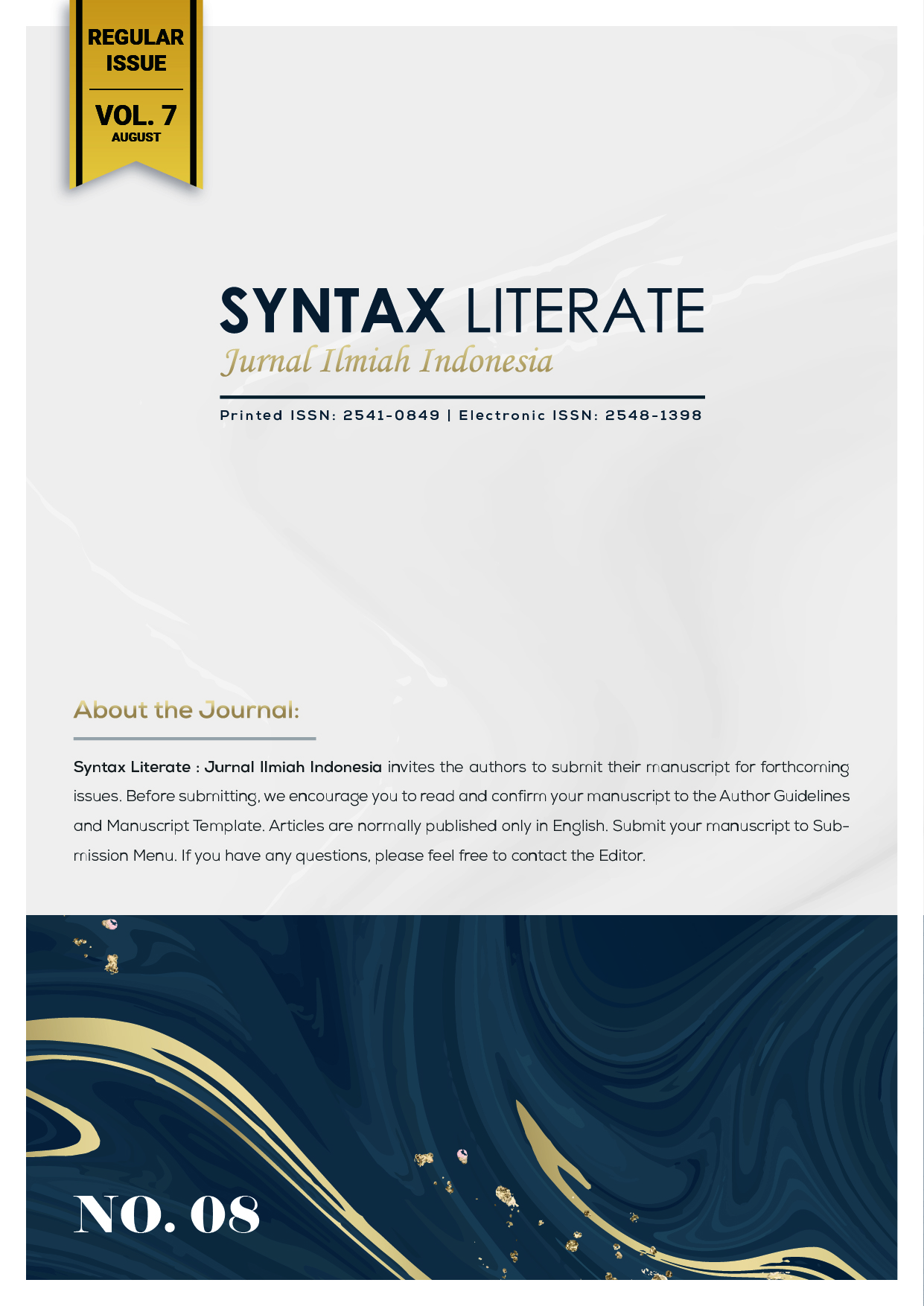Between Knowing and Acting: Peran Literasi Kesehatan Mental dan Pencarian Bantuan terhadap Self-Harm pada Mahasiswa
Abstract
Self-harm is a serious mental health issue among university students. Understanding the factors that contribute to this behavior needs to be a focus for a number of parties. This study aimed to identify the role of mental health literacy and help-seeking as factors influencing self-harm behaviour among university students. Data were collected through online psychological scales from a sample of 323 university students. Data analysis used multiple linear regression tests to test the research hypotheses. The findings revealed that self-harm behavior was not significantly influenced by mental health literacy (Sig 0.218 > 0.05, t-count 1.234). Help-seeking, on the other hand, was found to significantly influence self-harm behavior (Sig 0.000 0.05, t-count -3.916). R-square's coefficient of determination was 0.046, indicating that mental health literacy and help-seeking together explained 4.6% of the variability in self-harm behaviour. Further research into preventing and treating self-harm is advised, along with a greater emphasis on the value of appropriate and efficient help-seeking among university students.
Downloads
References
Burešová, I., Bartošová, K., & Čerňák M. (2015). Connection between parenting styles and self-harm in adolescence. Procedia – Social and Behavioral Sciences, 171,1106-1113. https://doi.org/10.1016/j.sbspro.2015.01.272
Dodok, Y., Alfianto, A. G., & Wicaksono, K. E. (2022). Pengujian Validasi Konten Kuesioner Ghsq-V Untuk Generasi Z Versi Bahasa Suku Kodi. 7(1).
Gandhi, A., Luyckx, K., Baetens, I., Kiekens, G., Sleuwaegen, E., Berens, A., … Claes, L. (2018). Age of onset of non-suicidal self-injury in Dutch-speaking adolescents and emerging adults: An event history analysis of pooled data. Comprehensive Psychiatry, 80, 170–178. https://doi.org/10.1016/j.comppsych.2017.10.007
Ismail, N.A., Kusumaningtyas, I., & Firngadi, M. S. K. (2023). Self-diagnose is associated with knowledge and attitude towards mental illness of university students in Indonesia. The Egyptian Journal of Neurology, Psychiatry and Neurosurgery. 59, 162. https://doi.org/10.1186/s41983-023-00760-1
Jorm, A. F. (2012). Mental health literacy: Empowering the community to take action for better mental health. American Psychologist, 67(3), 231–243. https://doi.org/10.1037/a0025957
Kelly C, M., Jorm A. F, Wright, A. (2007). Improving mental health literacy as a strategy to facilitate early intervention for mental disorders. The Medical Journal of Australia. 2007;187(7 Suppl), 1–5. https://doi.org/10.5694/j.1326- 5377.2007.tb01332.x.
Kusumadewi, A. F., Yoga, B. H., Sumarni, S., & Ismanto, S. H. (2020). Self-Harm Inventory (SHI) Versi Indonesia Sebagai Instrumen Deteksi Dini Perilaku Self-Harm. Jurnal Psikiatri Surabaya, 8(1), 20. https://doi.org/10.20473/jps.v8i1.15009
Liem, A., Prawira, B., Magdalena, S., Siandita, M. J., & Hudiyana, J. (2022). Predicting self-harm and suicide ideation during the COVID-19 pandemic in Indonesia: A nationwide survey report. BMC Psychiatry, 22(1), 304. https://doi.org/10.1186/s12888-022-03944-w
Paes, A. (2017). Self-harm in adolescence. InnovAiT: Education and Inspiration for General Practice, 10(4), 202–208. https://doi.org/10.1177/1755738016673861
Reavley, N. J., McCann, T. V., & Jorm, A. F. (2012). Mental health literacy in higher education students: Mental health literacy in higher education students. Early Intervention in Psychiatry, 6(1), 45–52. https://doi.org/10.1111/j.1751-7893.2011.00314.x
Rowe, S. L., French, R. S., Henderson, C., Ougrin, D., Slade, M., & Moran, P. (2014). Help-seeking behaviour and adolescent self-harm: A systematic review. Australian & New Zealand Journal of Psychiatry, 48(12), 1083–1095. https://doi.org/10.1177/0004867414555718
Sebastian Pratama Sondakh, J. & Ria Maria Theresa. (2020). Hubungan Stres Dengan Timbulnya Kecenderungan Gangguan Mental Emosional Pada Mahasiswa Fakultas Kedokteran Universitas Pembangunan Nasional “Veteran†Jakarta. Jurnal Kedokteran Universitas Palangka Raya, 8(1), 906–917. https://doi.org/10.37304/jkupr.v8i1.1496
Syafitri, D. U. (2021). Behavior seeking psychology assistance to students of Sultan Agung Islamic University Semarang. 1(1). https://doi.org/10.21070/iiucp.v1i1.604
Syam, R., Saleh, A., Purwita, I., Mawandani, N. W., Mayangsari, P., & Maharani, S. (2021). Program kesehatan mental “taking care of your mental health and those around you†berbasis online sebagai upaya peningkatan pemahaman kesehatan mental masyarakat. PENGABDI: Jurnal Hasil Pengabdian Masyarakat, 2(2), 160-167.
Tarigan, T., & Apsari, N. C. (2022). Perilaku self-harm atau melukai diri sendiri yang dilakukan oleh remaja (Self-harm or self-injuring behavior by adolescents). Focus : Jurnal Pekerjaan Sosial, 4(2), 213. https://doi.org/10.24198/focus.v4i2.31405
Umubyeyi, A., Mogren, I., Ntaganira, J., & Krantz, G. (2016). Perilaku mencari bantuan, hambatan dalam mendapatkan perawatan, dan efikasi diri dalam mencari layanan kesehatan mental: Studi berbasis populasi di Rwanda.
World Mental Health (WHO). (2022). World Mental Health Report: Transforming Mental Health for All. 2022. Dipublikasikan di https://www.who.int/publications/i/ item/9789240049338
Copyright (c) 2024 Qurrota A'yuni Fitriana Fitriana

This work is licensed under a Creative Commons Attribution-ShareAlike 4.0 International License.











